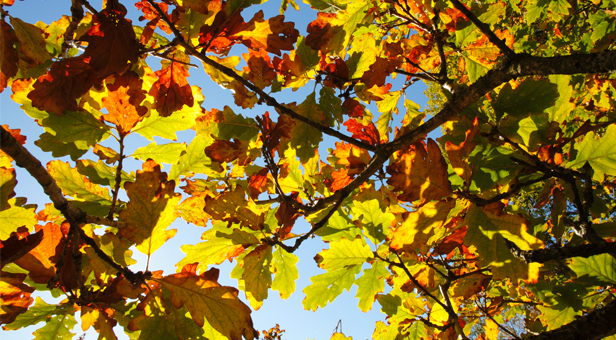
The Woodland Trust is asking people to look for signs of autumn in Dorset, as it tracks the season’s arrival on its Nature’s Calendar survey. Early indications suggest autumn may be a little later than average and the charity is appealing for more records on what is the longest-running survey of seasonal change in the UK.
The Trust records evidence of autumn’s arrival from sightings of leaf tinting, ripening of autumn fruits like blackberries and the departure of migratory birds like swifts and swallows. In Dorset, the Trust has so far received records of departing swifts in Bournemouth and early leaf tinting in Poole.
Dr Kate Lewthwaite, Woodland Trust citizen science manager, said, “Nature’s Calendar has records dating back to the 18th century, but we receive far less information about autumn than spring so we’d really like to see more people take part and tell us what they see this year across Dorset.”
Anyone can take part in the Nature’s Calendar survey and record signs of autumn; this could be in the back garden, a local park or the nearest wood. By recording dates of seasonal activity, the Trust is able to see how climate change is affecting plants, trees and wildlife from one year to the next. Since Nature’s Calendar began in the year 2000, the Trust has already compiled evidence that autumn fruiting has advanced by nearly three weeks on average.
To find out more about Nature’s Calendar and your nearest local woods to visit this autumn, go to woodlandtrust.org.uk/visiting-woods






